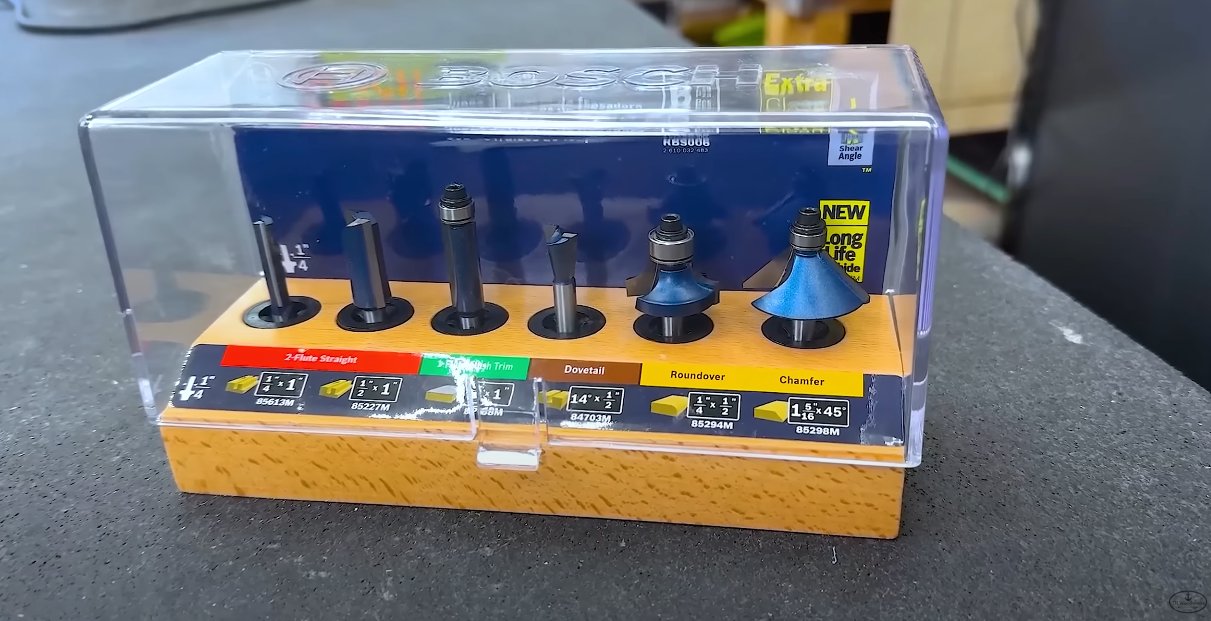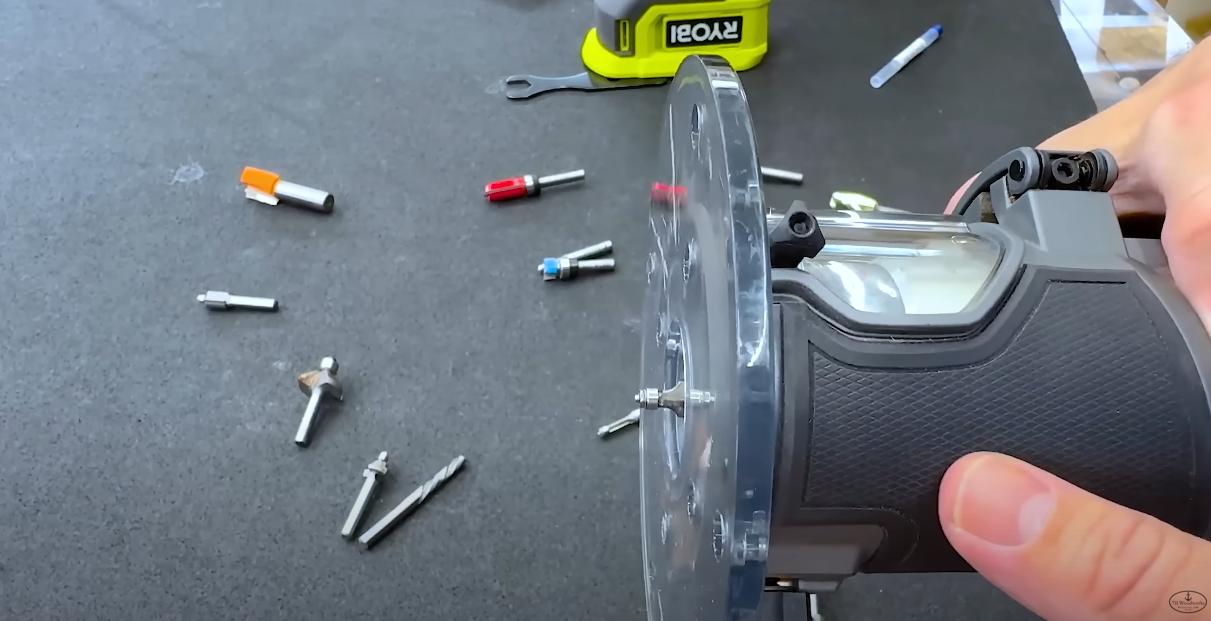5 Router Bits Every Woodworker Should Own (Beginner Guide)Everything You Need to Know About Routers, Bits, and Getting Started the Right Way
If you're just starting out in woodworking, picking up your first router can feel downright intimidating. I get it—when I first started, that spinning bit made me more nervous than the table saw ever did. But once I learned how to use a router the right way and found the bits that really matter, it became one of my favorite tools in the shop.
In this post, I’ll walk you through the top 5 router bits every woodworker should own, give you some honest router buying advice, and share the tips and safety tricks I wish someone had told me years ago.
Affiliate Disclaimer
This post contains affiliate links, which means I may earn a small commission if you buy through them—at no extra cost to you. It helps keep the tool deals coming, so thanks for your support! Prices are valid at the time of posting but are subject to change at any time.Watch The Full Youtube Video Here: Complete Beginner’s Guide to Router Bits
🧰 Choosing the Right Router (Trim vs. Plunge vs. Cordless)
Before we jump into the bits, let’s talk routers—because if you’re confused about which one to get, you’re not alone.
🪵 Trim Routers (a.k.a. Palm Routers)
Great for beginners. These small, handheld routers are:
Budget-friendly
Easy to control
Perfect for the 5 must-have bits below
💡 Top Trim Router Picks:
Bosch Corded Trim Router – solid and reliable
Milwaukee M18 Cordless Trim Router – my personal favorite
RYOBI 18v Trim Router – great for those on a budget
🧱 Plunge + Fixed Base Routers (Corded)
If you're planning to cut deeper grooves, dovetails, or want more versatility, these give you more power.
💪 Top Corded Combo Options:
⚡ Cordless Plunge Routers
If you want the latest and greatest with safety features built in:
DeWALT 20V Cordless Plunge Router – top-tier plunge base and anti-kickback
⚠️ Router Safety Tips for Beginners
Your router can be your best friend—or your worst nightmare if you’re not careful. Follow these to stay safe:
🔄 Know Your Direction:
Outside edges = counterclockwise
Inside edges (like trays or boxes) = clockwise
✂️ Use Push Cuts, Not Climb Cuts
Push cuts give you control. Climb cuts can grab and kick back.
✨ Sharp Bits Are Safe Bits
Cheap router bits dull quickly. Burn marks, rough cuts, and scary kickbacks usually follow. Invest in quality.
🔧 Helpful accessories:
🪚 5 Must-Have Router Bits for Woodworkers
If you’re just getting into woodworking, these five router bits will cover 90% of what you’ll need. Let’s dive in:
1. Roundover Bit
Gives your projects a smooth, finished edge.
✅ Perfect for:
Cutting boards
Tabletops
Shelves
📦 Great Sets:
2. Chamfer Bit
Creates a clean, angled edge for a modern look.
✅ Use it on:
Picture frames
Furniture edges
Cutting boards
3. Flush Trim Bit
Essential for pattern routing and batch work.
✅ Options:
Top-bearing and bottom-bearing bits
Match your pattern orientation
🛠️ Bosch 6-Piece Bit Set includes a solid flush trim bit.
4. Straight Bit
Great for cutting dados, grooves, and even box joints.
✅ Must-have sizes:
Pro tip: Use Kreg Setup Bars for precise cutting depth.
5. Dovetail Bit
More than just for joints—it powers the genius MicroJig Dovetail System.
✅ Perfect for:
Building custom clamps and sleds
Jointing edges without a jointer
Modular workbenches and jigs
🧩 Try the MicroJig Dovetail Combo Kit for the full setup.
💡 Final Thoughts: Start Small, Build Smart
These five bits and a good router will unlock a world of possibilities in your woodworking journey. From shaping edges to cutting joinery and building jigs, you don’t need a massive tool collection—just the right tools.
If you’re ready to grow your skills and maybe even make some money from your work, check out my free beginner course at skool.com/731works. You’ll get:
A quick-start path to your first sale
90+ project ideas
Interviews with real woodworkers making it happen







